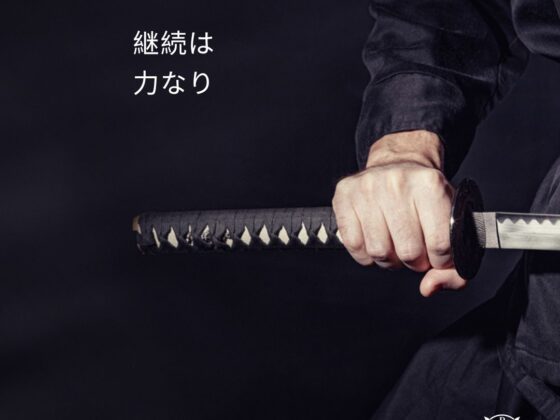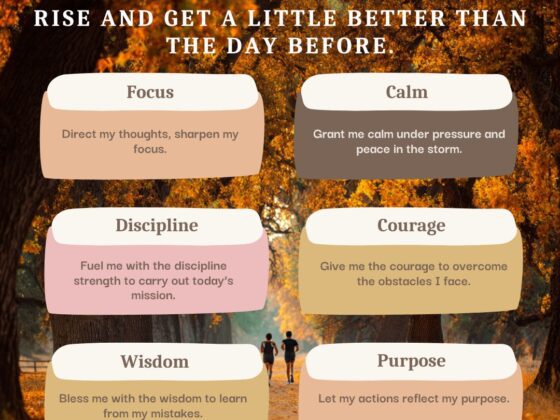“Self-discipline begins with the mastery of your thoughts. If you don’t control what you think, you can’t control what you do.” – Napoleon Hill
Complaining is not a strategy.
Control your emotions, find discipline, and take action.
Complaining Hurts More Than It Helps
Complaining hurts more than it helps.
Complaining instead of engaging in hard work can hurt us in several ways, both mentally and practically.
Complaining causes us to focus on problems, not solutions. Complaining keeps our focus on the obstacles rather than the solutions. Com
Hard work, on the other hand, allows us to confront challenges directly and make progress, building confidence and resilience.
Complaining does not get any work done. It is a thought loop on inaction. It reinforces the negative thinking and thoughts.
Thoughts alone do not get anything done.
I have been impressed with the urgency of doing. Knowing is not enough; we must apply. Being willing is not enough; we must do. – Leonardo da Vinci
This quote highlights that intention or thoughts alone are insufficient and that real progress comes from action.
When we complain, all we do is reinforce a negative mindset. This can lead to self-doubt, frustration, and even hopelessness. This is the opposite of the daily affirmations I discuss in my newsletter titled “Think Yourself To Success.”
Hard work and action are where you need to focus because it fosters a positive mindset. Again, we must remind ourselves that challenges are opportunities to improve. Each challenge we overcome creates a more positive outlook on life.
How many of you have sulked on your sofa after a breakup? How about blowing off a week or two after a failed interview or promotion? Complaining and sulking lead to wasted time and energy.
Time and energy are our number one and two limited resources. Time we can never get back once wasted, and it isn’t easy to perform at our highest potential when we deplete our energy.

Complaining consumes our time and energy. Complaining is not an action. It does not move us closer to our goals. Hard work and action, even when difficult, move us closer to our goals and are a more valuable use of our time and energy. Positive energy builds momentum and creates a sense of accomplishment while creating positive emotions.
Complaining is a position of weakness; it weakens our resilience.
I often discuss creating positive systems and habits that help you realize your goals and dreams.
Constant complaining can lead to forming negative habits, such as giving up at the first sign of difficulty and challenge. Giving up at the first sign of difficulty makes us less resilient.
This is the opposite of what we are trying to accomplish at The Day Warrior. We want to take on our challenges and overcome them. This hard world strengthens our ability to handle setbacks, teaching us to persevere and adapt.
The Day Warrior does not like the victim card. Complaining reduces self-efficacy. Self-efficacy is the belief in our ability to accomplish specific tasks or goals. We need to find the self-confidence required to take on our challenges.
Complaining makes us feel like victims of our circumstances and reduces our confidence. It reduces our belief in our abilities to create positive change in our lives.
What Is the Productive Counter to Complaining?
Discipline is a foundational element for personal and professional growth. It helps you achieve your goals, build good habits, manage time, and enhance overall well-being.
The most basic example of discipline might be getting up early daily, working long hours to accomplish one’s goals, and facing problems head-on.
Most people fail at self-discipline due to a lack of clear goals, inconsistent habits, and the temptation from short-term dopamine hits. It is easier to binge-watch Netflix for the day than to get the exercise you should be getting instead.
Focusing on discipline instead of complaining requires a shift in mindset and approach.
Set Clear Clear Goals with Action Plans
“A goal without a plan is just a wish.” – Antoine de Saint-Exupéry
Discipline starts with having specific, actionable goals.
I believe strongly in systems over goals. I wrote an entire newsletter and many X posts on the subject. You can learn more in my newsletter, Systems vs Goals. Regardless, discipline can only start with goals.
Define what you want to achieve and break it down into smaller, manageable steps. more straightforward
I always fall back to the most basic example, going for a walk every day.
Set a specific time each day that you will go for a walk. Creating a routine makes it a habit rather than a choice. Habits are easier to remain consistent rather than “making a decision” about walking each day.
Lay out what you need to wear for walking the night before. Prepare in advance so you have everything ready to make it easier to get started.
Start small. You do not need to set a walking record on the first day. I started with short walks years ago in Japan.
Currently, I sit at 636 days a row, averaging 15,000 steps daily. I have averaged at least 10,000 steps a day since 2016. I have added 45 pounds of ruck weight to many daily walks.
It is a gradual progression, not a one-day victory. It is a series of daily wins sustained over a period of time.
Choose a route or location. Decide your route ahead of time. It could be a walk at a nearby park, your neighborhood, or the local mall (if it is still in business).
Sometimes, just having to decide a route can be enough of a deterrent that causes you to give up on walking.
I used this when I used to travel throughout Asia Pacific. Business travel can be the number one habit-breaking obstacle when forming new positive habits. I established a walking course for all the airports I would travel through. In each country I visited, I had a walking course. To this day, one of my favorite and most memorable traveling walking courses was in Wuxi and Shanghai, China.
Track Your Progress. This is a must. I know that I have walked 15,000 a day for 636 days in a row because I am tracking progress, and I have formed such a strong habit that I do not even break it when I am sick.
Habits are more challenging to break when you track them. Use a journal, calendar, or an app to track each walk. My go-to standard is an Apple Watch and Apple Health. Both are stupidly easy to use and as long as you wear your watch 24×7, you can easily track all your metrics.
Reward Yourself. Pair your walk with something enjoyable, like listening to a favorite podcast or playlist. This adds a positive association to the habit and makes it something you look forward to.
Breaking the goal into these simple steps makes it easier to stick with, helping you build a sustainable daily walking routine.
When you focus on actionable tasks, you have less room for complaining and more reason to stay on track.
Focus on What You Can Control
“Make the best use of what is in your power, and take the rest as it happens.” – Epictetus
Complaints often arise from focusing on external circumstances that feel unfair or challenging.
Discipline, however, involves directing your energy toward actions you can control.
This includes managing your time, attitude, and responses to setbacks, moving you closer to your goals.
Politics is something everyone reading this newsletter can relate to. We all complain about something in politics, whether it be the policies, candidates, pundits, or news media.
The reality is that there is very little we can do to influence the outcome of politics. Complaining does nothing to influence what is going on in the world.
Instead, focus on what you can control. Go for a walk, take a class, and do the things that help you become a better version of yourself.
Establish Routines
“We are what we repeatedly do. Excellence, then, is not an act, but a habit.” – Aristotle
Routines, habits, or systems are essential building blocks leading us to accomplish goals and become successful.
I referenced my newsletter Systems vs Goals above. I cannot emphasize the importance of establishing positive routines and habits to drive positive outcomes.
Daily routines create structure and build consistency, which is critical to staying disciplined.
Instead of wasting time and energy venting about difficulties, routines help you take small steps forward every day, building momentum.
Conclusion
Discipline is the bridge between sovereignty and personal success. It transforms dreams into reality, providing the foundation for self-governance and achieving your highest potential.
You cultivate a productive, proactive approach to challenges by choosing discipline over complaining. You’ll find that discipline leads you to your goals and strengthens your confidence and resilience along the way.
Remember, something else may work better for you. The strategies listed above can vary from person to person, so it might take some experimentation to find the best combination for you.
These are just a few ideas, and I will publish future newsletters or training course materials to take an in-depth look at this topic. Please let me know your own experiences in this area. I would love you hear from you and learn from you.
The Day Warrior
How to find more content from The Day Warrior:
If you enjoyed this newsletter, please subscribe.
If you want to provide feedback, please take The Day Warrior Survey.
If you want to have a deeper discussion about this subject, please get in touch with The Day Warrior.
Follow me on X for daily short and long-form content: @thedaywarrior.
My LinkedIn information is here: https://www.linkedin.com/in/the-day-warrior/
I am also on Instagram: @thedaywarrior.
My website is http:/thedaywarrior.com.










